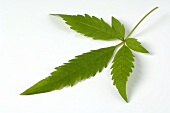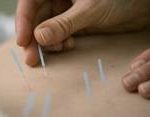Complementary therapies – information for PMS sufferers
Amanda Moore, MSc Nutrition
Getting the basics right first
Before considering using supplements and other complementary therapies to help your PMS symptoms make sure that you think about your lifestyle.
Stress: there is little doubt that stress makes PMS symptoms worse. It helps to be aware of the role stress plays and try to ensure you get enough sleep and time to relax. Exercise can also help to reduce excess adrenalin and make you feel calmer.
Diet: There is no substitute for having a healthy diet. Try to consume lots of fruit, vegetables and whole grains such as brown rice, rye bread and porridge oats. These foods help to keep your blood glucose more stable than sugary foods and this will help both your energy and mood. Sugar and white refined carbohydrate (like pizza, white bread, cakes and biscuits) are best avoided and keep alcohol to a minimum. Eat lean low fat sources of protein like chicken, fish and eggs.
What supplements may be helpful?
Herbal treatments
 Chasteberry (Vitex Agnus-Castus)
Chasteberry (Vitex Agnus-Castus)
Agnus castus has been evaluated in a number of clinical trials and almost all have shown an improvement in PMS mood, irritability, headaches and breast fullness. Generally there are few adverse effects reported. It is not
wise however to take agnus castus if you become pregnant or are breastfeeding, because of its effects on hormone levels. In addition it may interact with anti-depressant or anti-psychotic treatments rendering those treatments less effective. Dosages used in clinical trials vary from 20mg to 300mg but the recommended dose is 20-40mg.
 Evening Primrose oil (Oenotera biennis)
Evening Primrose oil (Oenotera biennis)
Evening Primrose oil (EPO) may act to balance prostaglandins (hormone-like substances made from essential fatty acids), which are involved in cyclical breast tenderness. There have been seven trials reported but it has been concluded that the evidence as it stands is not convincing, although there may be modest benefits for the reduction of PMS-related breast tenderness. If you want to try EPO, use it for just three cycles at first to see if you notice an improvement. The recommended dosage is 240mg/day.
 St John’s Wort (Hypericum perforatum)
St John’s Wort (Hypericum perforatum)
Don’t take it along side any medication for depression however. It can also make the oral contraceptive pill ineffective.
Others
While we do not yet enough trials to recommend Ginkgo biloba and Crocus sativas for PMS, research so far suggests both may prove to have some value in reducing physical and psychological symptoms of PMS. Red clover isoflavones and black cohosh may also be useful, particularly with PMS symptoms associated with the perimenopause (when your cycle changes over the years preceding the menopause up to a year after the final menstrual period).
Nutritional supplements
Vitamin B6
Vitamin B6 is required for the body to make the neurotransmitters that influence mood, such as serotonin. It is also important in controlling the expression of genes producing the female sex hormones so may play a general role in hormone balance. There have been quite a few B6 trials and they demonstrate some reduction in psychiatric PMS symptoms, although in general the quality of trials is not good enough to allow us to definitively recommend B6 supplements. If you do take B6, the trials suggest an 80mg dose. The active P5P form is the best formulation to take. Currently however, it is recommended that you do not exceed a dose of 10mg unless recommended by a medical professional, although supplements up to 100mg are sold legally in the UK[1].
Calcium
Blood levels of calcium are lower in PMS sufferers than non-sufferers and supplements may reduce symptom severerity.
1200mg-1600mg Calcium has been shown to improve PMS depression, tension, cramps and migraines. It may take at least two cycles to notice any benefit.
Magnesium
Lower levels of intracellular magnesium have been found in women suffering from PMS compared to non-sufferers. As magnesium plays an important role in neurotransmitter function and vascular contraction (hence PMS pain), three small trials have evaluated magnesium therapy. Unfortunately however, the failings in the ways the trials were carried out make it difficult for us to recommend magnesium supplementation at present, although it may prove to be of benefit in the future.
Vitamin D
Vitamin D is commonly deficient in the UK in winter and may be particularly important for Asian women, 74% of whom are Vitamin D deficient. Oral vitamin D at a dosage of 600ius/d has been shown to reduce menstrual pain and PMS psychological symptoms.
Other therapies
Cognitive behaviour therapy (CBT)
CBT has been evaluated against the antidepressant fluoxetine in women with PMDD, in a well-designed trial lasting 6 months. The results in the CBT group were encouraging and also 1 year post-treatment the effects of the CBT support were maintained. This evidence suggests that CBT is a useful treatment approach for managing psychological PMS symptoms.
 Acupuncture
Acupuncture
Acupuncture is a popular treatment choice for women with PMS. The scientific evidence for the benefits of acupuncture was recently reviewed. There are certainly published trials, which do show benefits for acupuncture on PMS symptoms (four out of nine studies). However, the quality of the trials to date is limited and more evidence is needed.
Citations
[1] The subject of B6 supplements has been the subject of intense scientific debate. In 1997 the UK government planned to limit sale of supplements to those containing 10mg. This was overturned by Beckett and a team of 220 scientists on a special task force, who criticized this recommendation (Beckett A (1998). Debate continues on vitamin B6. Lancet 352: 62). Beckett and other scientists argue that 50-200mg are taken by millions of people world-wide without evidence of toxicity. The government did not restrict sale of supplements up to 100mg based on this pressure, however a safety recommendation remains in place